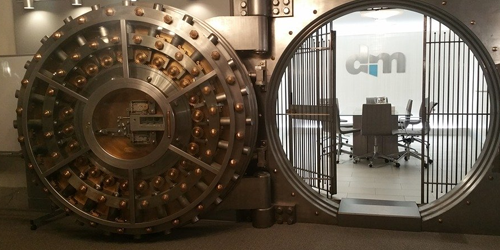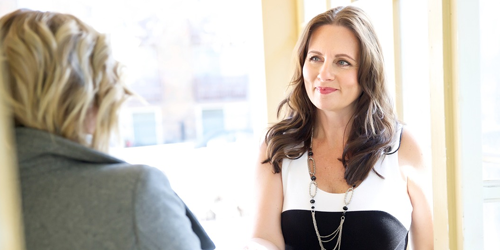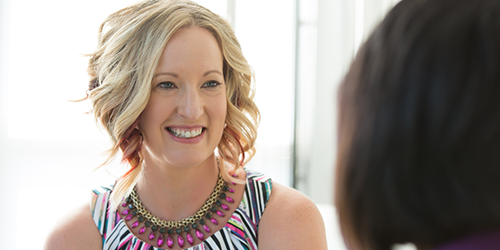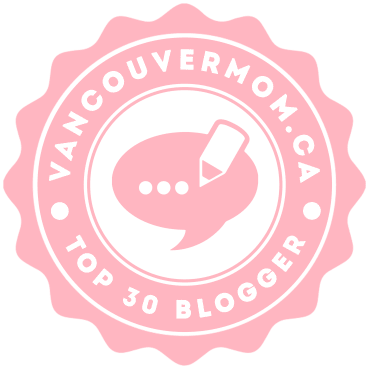|
What makes you #1? What are you the best at? Think about your work, career, or business.
Think about at home. Perhaps #1 in baking? What about #1 in dog grooming? Or maybe #1 in gardening? You can be #1 in anything you excel at, that you’re the best at, or that you’re a high achiever in. How to Stay At #1 Today I’m going to share with you how you can stay “on top” in whatever achievement or skill you have. Whether you want a successful business, to be the best in your area of expertise, or even #1 in your health, knowing how to get to the top and how to stay there is important. Part of this is learning how to work smarter, not harder. It’s also about getting clarity on your biggest assets and knowing how to use it to be memorable and implement a plan to stand out and design the best way to attract those you want to work with. So, for the sake of focus, pick one thing that you are (or you want to be) #1 at. Got it? Great, now keep reading to learn how to reach #1 by using your ASSETS! Identify Your Assets Think about your biggest asset. I'm not talking about your house, or your car, or a boat, or a big bank account. In this case, I mean an asset that can you can utilize to help you become #1.
If you wanted to be #1 in something business or career related, maybe your asset is your large email list. Maybe it’s a product? Is it an ability or skill? Is it your network? Your employees? Maybe you have another asset. Identify these and pick your biggest one or two. While doing this exercise it’s possible you’ll discover that your asset is the thing that sets you apart from your competitors and helps you get ahead. Now, think about your top asset and ask yourself, “How can I optimize this to reach #1?” For example, if you said your extensive business network was your asset, how can you use your network to help you to step forward? Well, you can use it to reach more people. Can you have people on social media support you, tag you, share your posts, invite their people to your events, invite them to your open houses, to product launches, to your store? For sure! If your asset is your amazing product and strong list, can you offer referrals to your contacts? Can you use your assets to engage your audience more? I challenge you for the next week to think about your assets and how they serve you. Which ones do you think are your most powerful assets that you can use to increase your authority or expertise? Next week, we’re going to look at how to develop your unique and memorable point of view to show the world you are #1. Until then, stay dynamic!
1 Comment
Last week we started talking about what you should be doing to get the most out of your mentorship relationship. Today, I’m sharing last 2 things you should ask from your mentor: 1. Making Connections The next thing that you should look for from a mentor is connections. Your mentor maybe able to open doors to people you couldn’t have opened yourself. They could make that very important recommendation or introduction to these connections Look at your mentor’s connections on LinkedIn and see if those are people you should be connected with. Check their other social media accounts too to see who they are already networking with. A recent colleague of mine recently connected with somebody that I really, really want to do business with. I’m going to keep this in mind and when the time is right, I'll be asking them for an introduction. Most mentors would be happy to make these connections for you, as long as it’s the right time and for the right reasons. Don't ask for these referrals on the first date with your mentor. Build the relationship with your mentor so they really get to know and trust you. Connections are huge and you NEED to earn that trust. Perhaps your first step could be to ask your mentor about this person and what they’re like. They might even turn around and say, “You know what? Let me introduce you to them right now.” You will most often need to earn this trust first by showing up to your mentor sessions on time, doing what you say you'll do, sending the agendas in, implementing what you've talked about, having that positive attitude and living according to your values. Then they'll be happy to introduce you to their connections. 2. Asking for Stories When your mentor shares a strategy or point of view, ask them for a story that relates to the topic. Stories will help the idea or strategy sink in better for you and will really help you to see how to implement what they're talking about. Stories help make the strategy or idea more tangible or real.
A colleague of mine was sharing a point of view and told me a story about a conversation she had with Richard Branson on Necker Island! That helped create a picture in my mind and to really comprehend the point she was making. Don't be afraid to ask, “Hey, did that actually happen to you?” or “Do you have a story that could explain that?” Or when you first meet with mentor, ask if they can share some stories! Of course, some stories they can't share based on confidentiality with their clients or their business. You could say, “I’d love to hear stories of how these things have affected you, how they've influenced you, or how you've done certain things.” Ask for stories to back up the points that they're making. And when you have a great mentor that tells great stories, oh my goodness, those things are going to stick in you! So…now what? If you don't already have a mentor, a coach, a consultant, someone that you can go to for advice or support, I suggest you go find one. You could start by browsing my website to see if our values align. If they do, let’s have a conversation about me being your mentor or coach. No matter who you choose, find a mentor who inspires you and when you get started, show up looking to also inspire them. Have a very clear agenda of questions and topics you need advice on. Accept their strategies and be open to different points of view. Build that trust so they'll open up their Rolodex to you when you need it. And ask them to share their stories with you! Doing these five things will help get the most out of any mentorship in your life. If you already have a mentor, think about these five things and ask yourself, “Am I really getting the best value from this mentorship opportunity? What do I need to do differently to get more out of it?” A mentor can help you up-level any or all areas of your life! It is never too late or early to have someone in your life. Do you have a mentor? Let me rephrase that…Do you have a GREAT mentor? The mentor-mentee relationship can provide you with so many great benefits, if you find the right person, and are dedicated to getting the most out of the opportunity. But there lies the challenge. What should you look for in a mentor to make sure you’re getting the value you need from the relationship? Who can be a mentor? In a traditional sense, many mentors are actually volunteers. They are just supporting you and helping you and are NOT there to give away all their ideas and knowledge. A mentor is there to help and guide you through whatever you're going through. Your mentor could be a networking colleague, someone from a mastermind group, or even a cool aunt, a neighbour, or other person in your life who is doing really well in life or business. There are also opportunities for paid mentorship where you pay to connect with someone. These people may call themselves consultants, coaches, or can be someone referred from a mentoring agency or organization. So a “mentor” can come in the form of a colleague, coach, consultant, or advisor, as long as you define the relationship. Here are the first three of five things you should be doing or considering in any mentorship arrangement: 1. Getting Inspired Look for a mentor who can inspire you. We’re often siloed in our business or life. In our own little box, our own tiny fish bowl, under our own glass ceiling with own limiting beliefs and boundaries. You should be inspired every time you talk to your mentor. When you’re inspired, you're often more motivated to go for the things you want. When you're inspired, you can get more done. You get into action faster and then to stay dedicated to that action. Being inspired by a mentor, helps you get into resonance and resonance is energy flow. On the flip side, your mentor should also be inspired by you! You may think, “Well, what could I teach them?” It's not about teaching. It's about showing up with positive energy, Gusto, with a can-do attitude and then actually doing the stuff and implementing it. Your mentor can be inspired by your hustle or your positivity. Think about how you can inspire them. Just ask yourself, “How can I get inspired by them and how can I inspire them as well?” Also look to be inspired, and learn, from their strategies! Great mentors share great strategies, helping you to strategize about whatever it is you’re struggling with or wanting to accomplish. Mentors should be ahead of you in some way. Even if they are in a different industry, their experience can help you figure out a plan. To get the most value from your relationship, make sure you come prepared to every meeting…which is #2 below: 2. Creating Agendas Come prepared to every mentor meeting with an agenda that includes the things that you are wanting to learn or get mentoring on. Give your mentor your agenda in advance so that they can pre-think on the topics that you want to talk about. I do this with my clients. They send me a prep form before each session with everything they want to work on together. Then I know where they want to go, so I can help provide clarity and insight on exactly what they need. In your agenda, be clear about the type of support you want and then use that word, ask them specifically, “Can you help me brainstorm ideas/give me feedback/choose the best option/see if I’m missing anything?” Ask to strategize together. Strategize is another word for brainstorming. When you're open to talking through different strategies, you might find the one that works for you. 3. Being Open to Different Points of View Everyone has their own unique set of experiences and knowledge, which leads to a unique point of view. We’re often in that fishbowl and don’t stop to consider, or even know, there are other ways to look at a situation because we are so consumed by the moment and our personal experience. This is often referred to as having limiting beliefs.
Being open to different points of view can create a perspective shift, which can help you break past barriers or obstacles. A new perspective you may never have thought of on your own, but one that comes from your mentor and their view of the world can be HUGE for you! It could help you to make a quicker decision on something, help motivate you, or help you make more money. Make sure you choose a mentor whose values are in alignment with yours. This way, when they share their perspectives with you, they are more likely to be in align with your values too. Next week I’ll share the last 2 things you should be asking of your mentor. When we overthink we can’t sleep. Then we experience more self-doubt or we get into a kind of paralysis where we’re not present anymore for the ones we love. Last week we talked about overthinking, and what the studies (and our Dynamic Women® community) say about how long we should spend in focused decision-making time. Now let’s talk a bit about some ways to help us stop overthinking. Here are a few ways you can encourage yourself to make the decision faster:
Here comes what my clients call a “Diane-ism!” Everything is figureoutable! (And how timely that it’s even in Marie Forleo’s latest book.)
It is the truth! You can figure this out. Keep focusing on active problem solving. Don't dwell on the problem. Don't dwell on the fact that you can't make a decision on this. Ask yourself, what steps can I take? What can I do next to move me forward? Is this really the first question I need to be asking myself? If right now truly isn’t the right time to make this decision, get some exercise. Go for a walk and be in nature or sleep on it. Know that everything is figureoutable and that you will be able to make a good decision. And if fear comes in, ask yourself if this will matter in five years or even five weeks. Overthinking it takes your time. It takes your money. It takes convenience. It takes away balance and it gives you so many negative things. So why did we do it? I implore you, don't do it anymore. Focus on the decision making and make small decisions as quickly as possible. What is this is going to do? It's going to build your decision-making muscle. I mean, what's the worst that can happen from a bad decision? You're going to learn from it and you're going to know what decision to make the next time. Don't take yourself so seriously. Get out there and make some decisions! And I'd love to hear how this article has impacted you in your decision making and how you have made an awesome dynamic decision. |
Archives
June 2024
Categories
All
|
My services |
Privacy Policy
|
Coaching Resources |
Connect with me
|














 RSS Feed
RSS Feed